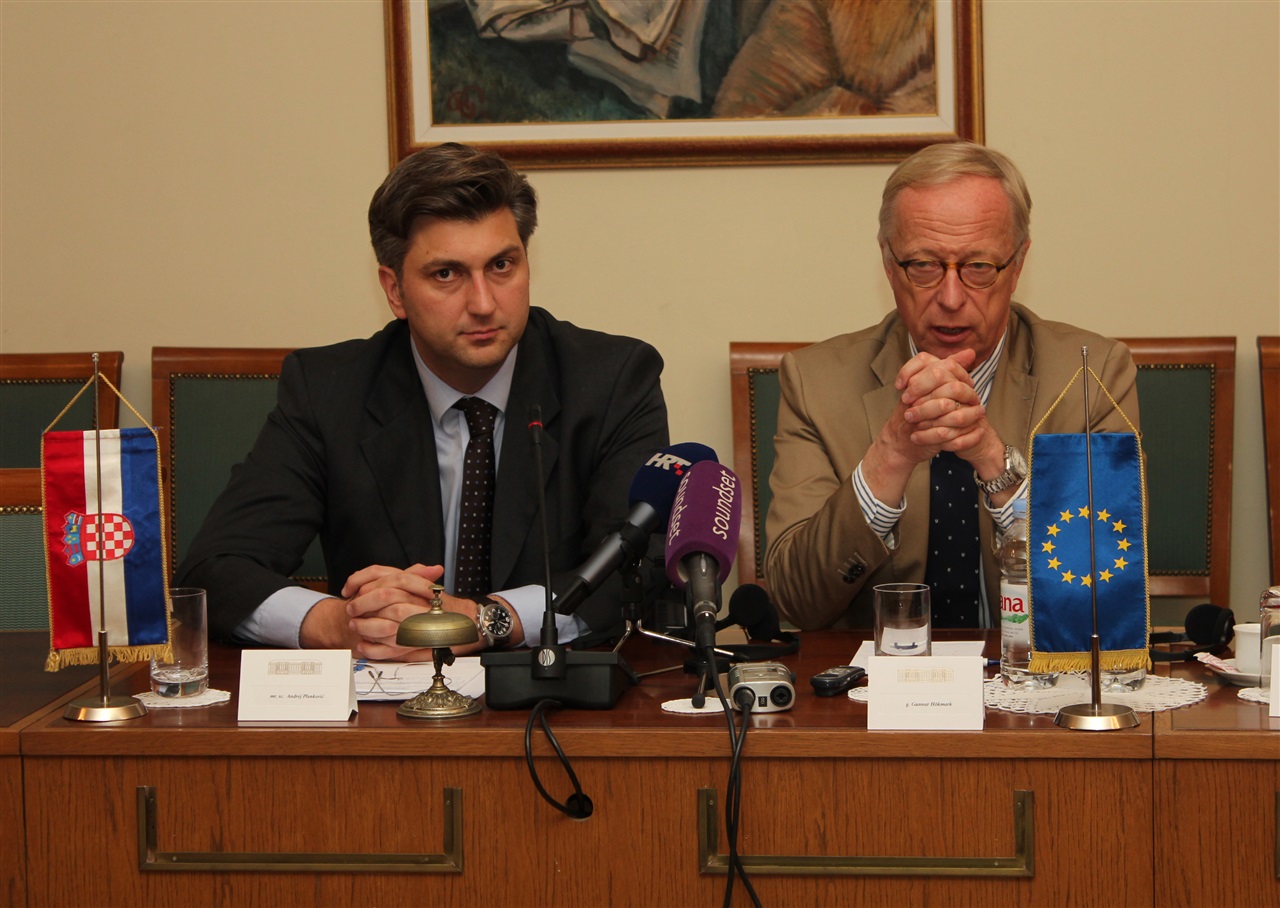
Zagreb - The 15th meeting of the Croatia-EU Joint Parliamentary Committee (JPC) took place in the Croatian Parliament from 2 to 3 May. The meeting was co-chaired by Andrej Plenković, chairperson of the Croatian Parliament Delegation to the Croatia-EU JPC, and Gunnar Hökmark, head of the European Parliament Delegation. Vesna Pusić, Minister of Foreign and European Affairs and other representatives of the Croatian government also took part. Danish Ambassador Bo Eric Weber attended the meeting on behalf of the country chairing the EU Council, while the European Commission was represented by the head of the EU Delegation in Zagreb Paul Vandoren.
The main topics covered were: the remaining steps for Croatia's accession to the EU, ratification of the Accession Treaty in the Member States, pre-accession monitoring, strengthening of the coordination of European affairs, new challenges for the Croatian Parliament in the light of the Lisbon Treaty, enlargement perspective for the countries of South-East Europe, pre-accession assistance in the preparations for cohesion and structural funds, Multiannual Financial Framework 2014-2020, Economic outlook Croatia and EU, pre-accession economic programme, Europe 2020 Strategy, Economic governance, stability mechanisms and Fiscal Compact.
At the press conference held after the Joint Recommendations had been adopted, Andrej Plenković highlighted three key processes in the final stage of Croatia’s road to full EU membership: efficient ratification of Croatia’s EU Accession Treaty by the national parliaments of the EU member states, respecting the obligations stated in pre-accession monitoring reports and making the best of the “active observer” status in the institutions of the European Union.
Gunnar Hökmark welcomed Croatia to the European Union, and referred to the beginning of Croatian MPs’ work in the European Parliament as a historical step for Croatia, the EU and the countries of the West Balkans in the light of their own EU perspective. Croatia can serve as a role model to other countries aspiring to become EU member states, Hökmark explained, and a successful relationship between Croatia and the European Union will unavoidably influence the entire region.